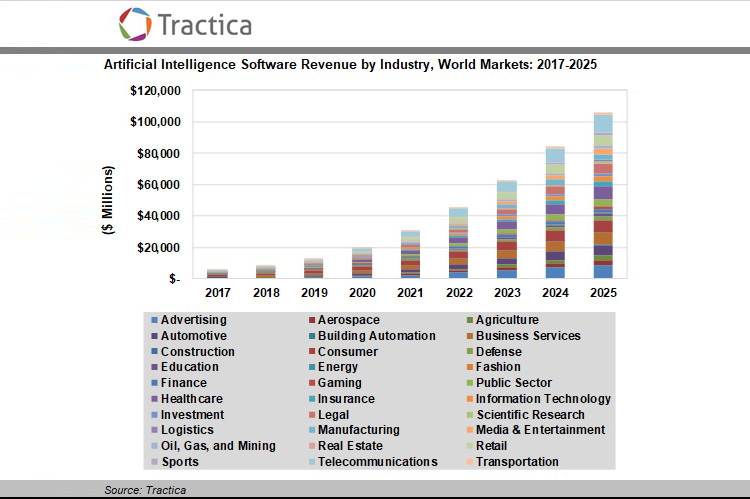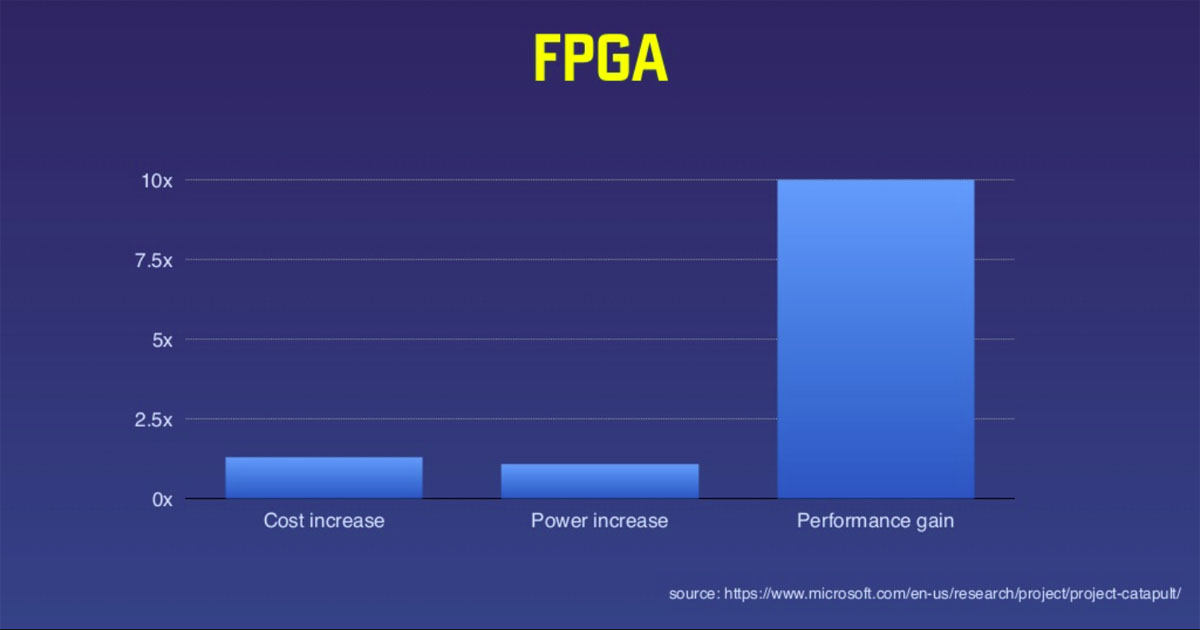
FPGA for Artificial Intelligence: predictions, challenges, and solutions
AI applications are predicted to thrive and cover more and more aspects of our life. The US-based market research company Tractica predicted the revenue from AI-based software to reach as much as $105.8 billion by 2025. Also, they believe that telecom, consumer, and automotive will be among the top 10 industries in terms of AI adoption and spending:

Along with this impressive growth, the two main challenges will arise for developers: first, faster data processing and transferring; second, improving the overall performance of AI applications. And here is where FPGAs are just the ticket.
Why FPGA?
FPGA has been around since the 1980s. Unlike modules and processors, FPGA can be customized on demand using hardware description languages (HDL), such as SystemC, Verilog, and VHDL. With HDL a developer can reconfigure a chip to match the specific requirements. This is a very flexible feature, but at the same time very complex.
Resolving complicated tasks and data processing are performed much faster by FPGA systems than by graphics processing units (GPUs). Being less power-hungry, FPGAs deliver high-bandwidth memory and the custom parallelism suiting the permanently changing artificial neural network structure.
Source: presentation "Cloud-based FPGA Acceleration for AI applications" by Rob Taylor for Project Juno's second Machine Intelligence Showcase
AaaS to accelerate FPGA
Many cloud providers offer a new service — Acceleration as a Service (AaaS), allowing customers to access FPGA accelerators. With AaaS there is an opportunity to make FPGA accelerate numerous types of operations: Big Data processing, machine learning (ML) model training, video streaming analytics, running financial computations, and database acceleratioтn.
In future publications, we will look at this topic in more detail and focus on specific case studies of FPGA in AI applications by Intel, Microsoft, Xilinx, and other market leaders. Our engineering team is now engaged in complex FPGA design projects and will be happy to share expertise in this blog. So stay with us.

